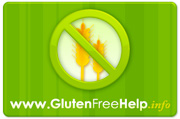In my work as an author, researcher, and gluten-free advocate, I work hard to help the gluten-sensitive and celiac communities live a healthy, balanced lifestyle, free from the threat of gluten ingestion. Over the past several years, I am grateful to have witnessed a marked increase in gluten-free awareness and celiac disease research, with many benefits for gluten-free consumers, such as gluten labeling laws, more companies devoted to manufacturing gluten-free alternatives, and helpful online resources. Nevertheless, there is one arena that needs to be addressed—gluten labeling requirements of medications. As it stands, the FDA hasn’t implemented any such requirements, putting celiac patients at risk.
It’s estimated that three million Americans have celiac disease, an autoimmune reaction to gluten, a protein found in wheat, barley, and rye. Genetic in origin, the disease works by attacking the absorptive fingers which line the small intestines, called villi, damaging them so that vital nutrients can’t be absorbed. What results is a wide variety of painful physical and mental symptoms, such as chronic diarrhea, chronic exhaustion, stomach problems, and migraines. Even though prescription and over-the-counter drugs can contain this ingredient that can make 1 in 100 Americans seriously ill, no clear gluten labeling laws exist, a fact which NFCA (the National Foundation for Celiac Awareness) is working hard to remedy.
The FDA has already launched a Safe Use Initiative, in which the FDA “seeks to partner and collaborate with relevant stakeholders to measurably reduce preventable harm from medications, thereby improving patient health,” according to the FDA’s website. Alice Best, Founder and President of NFCA, and Loretta Jay, M.A., the Director of Program Development, have teamed together to get the FDA to expand the initiative’s scope on behalf of the celiac community. “The Safe Use Initiative’s emphasis on informational errors makes this project particularly important to people with celiac disease and gluten sensitivity,” they wrote to the FDA.
According to Best and Jay, without labeling requirements for medications, “although few medications do contain gluten, every medication must be investigated to verify its gluten-free status.” The current situation requires that pharmacists and patients contact the pharmaceutical manufacturers themselves to inquire about gluten content. “Answers are not available after regular business hours, and sometimes manufacturers are not prepared with the responses when contacted during the day,” Best and Jay write. Furthermore, this information can change easily as pharmaceuticals are manufactured differently. Whereas time-consuming research can be inconvenient for celiac patients when it comes to food products, it can be a health-threatening matter when dealing with medication.
Clearly, this lack of gluten labeling requirements can put celiac patients at risk and result in what Best and Jay call “the almost certain potential for error and consequent grave harm to the celiac and gluten sensitive patient population.” Thankfully, we have the NFCA working on our behalf. In the meantime, celiac patients and pharmacists will have to continue their diligent research on their own. “It will be a long road,” Jay says, but with perseverance I think we can look forward to future gluten labeling on our medications.
Tina Turbin
k.m.
Resources:
FDA: FDA’s Safe Use Initiative http://www.fda.gov/downloads/Drugs/DrugSafety/UCM188961.pdf
Regulations.gov: National Foundation for Celiac Awareness (NFCA) http://www.regulations.gov/search/Regs/home.html#documentDetail?R=0900006480b0e253
From our home to yours, Tina Turbin
If you have any questions or suggestions just email me at Info (at) TinaTurbin (dot) com.









wow it’s such a relief to see this. I’m so happy already that the FDA has finally proposed some guidelines for us to comment on and I really look forward to having them finalized (except that “low in gluten” label–what’s with that anyway?). I have had so many issues trying to get gluten-free meds and for several years I had accidental ingestion from cross-contamination of certain medications (at least that’s the conclusion I came to). We are really making progress and there’s good reason for patting ourselves on the back yet we have a lot more to go especially when it comes to this medications subject!
I’m always happy to hear about this subject as I know it does get neglected but when you think about how many people with diseases also has an intolerance to gluten it’s so important to make sure that the medication they’ll use be gluten free. Thanks!
@Nell Hardy thanks for bringing this up. Here’s an awesome link http://1in133.org/proposal/ to find out about the FDA guidelines that have been proposed. You can submit comments until October and there’s a letter you can add your name to containing some great comments on the proposal.
I’m loving your blog, Tina! Great info, day after day!
IT’S ABOUT TIME! I’m so pumped that the FDA guideline proposals are finally in and I can’t wait for medication to be taken up as well in time. It’s been quite a fight, but we’re making progress!
Thanks for keeping us so well updated on this stuff. I know I should be more active in the gluten free arena, but I haven’t really had time to keep up with the news or go to celiac support group meetings and stuff like that. Your blog really makes me feel “in the know” though so I don’t feel like such a dummy about this stuff!
OMG this is SO needed. Let’s do it!
All I have to say: About damn time!
@Shelly Barnes thanks so much for this link! I actually didn’t even know the FDA guidelines were out already. Isn’t that sad? I really need to stay more in the loop! And I agree with Tina completely that we really need to focus on medication too.